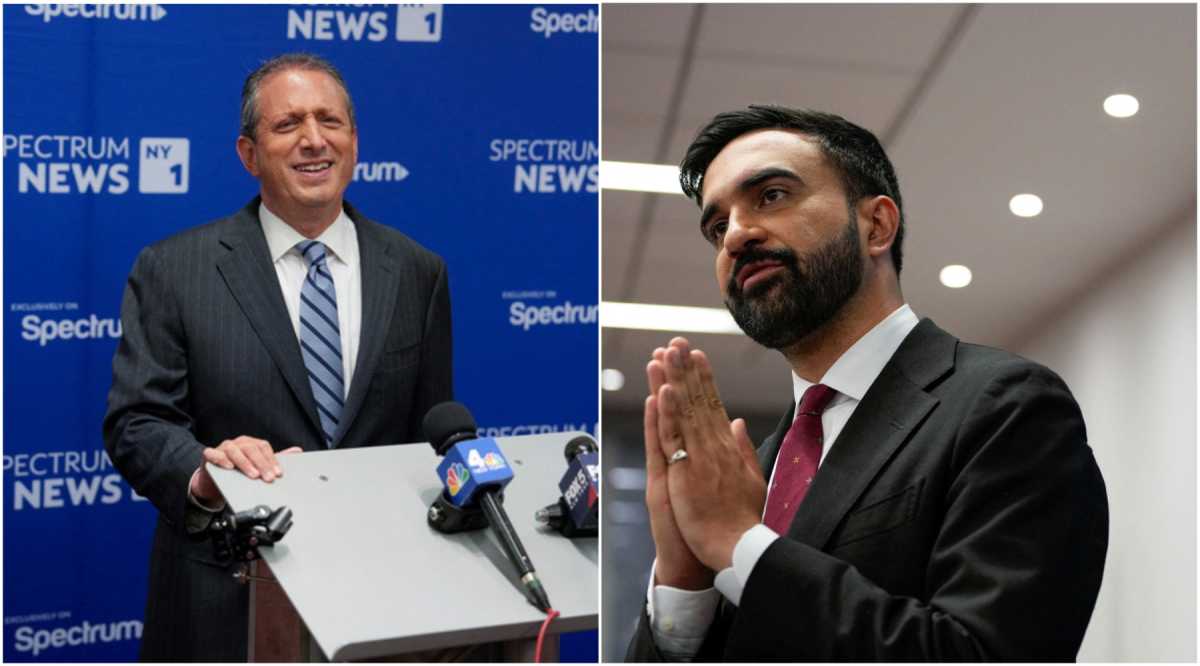The biggest takeaway from Errol Morris’ “American Dharma” is that Steve Bannon really likes attention. To describe this need in Bannon as transparent and cringeworthy hardly does it justice. But there’s a lot more at stake than our potential discomfort with the mercurial Bannon.
Since his ideology is as pliable as his uncentered moral compass – and ultimately swings to his own benefit and taste – this craven desire for attention doesn’t seem to filter or flag that Morris’ examination of his “Bannonness” could be presented as criticism or ironic pedestaling. The fact that the entire set where Morris allows Bannon to present his thoughts is a recreation of the set of one his greater fixations – the 1949 Gregory Peck film, “Twelve O’Clock High” – should be a clue to the level of irony and repulsion that Morris has in his cache.
“It’s hard to believe that Stephen Bannon, whether he knows it or not, isn’t just acting to enrich himself. Do I see a principle dedicated fighter for human liberties and rights? I doubt it. I see an a–hole. I see it a man who likes attention,” Morris said.
Bannon attaches himself to base messages about duty, honor and patriotism. He posits himself as a deep-dive intellectual but rarely wades out of the shallow end of the pool. Bannon fetishizes bygone values in a facile maneuver to present himself as a student of history, and for a minute, it’s kind of cute. The man is clearly aware of the power of straightforward, simplistic stories about principles. He’s still childishly enamored with them himself, and the power of their dictating ideas, such as ‘A Natural Order’ and ‘Natural Way of Things.’ The thing is that he hasn’t really developed the capacity for empathy on an emotional level, nor the capacity for nuance. He sees no connection between ‘Natural Orders’ and institutional racism. Bannon’s not a racist, of course. He will very much tell you that. Did he mention he’s not a racist? Bannon never explains how that works in the film, but we’re to assume that he’s just not a racist. Subtext might indicate that Bannon might be prone to painting ‘The Other’ as an ideological and foundational enemy to our nation, but he’s not a racist.
“I mean, I should say to all the people that have said that this movie is a puff piece for Steven Bannon, I should say ‘f–k you,’ if I want to be in the spirit of the times,” Morris says, having referred to President Trump as the “F–k You President” in the film. “I think that Trump drove America crazy. This is how I know it’s by extension, certainly, by watching and reading stuff around me. I can make an educated guess by saying how I feel. And I feel that I’m watching America being destroyed in front of my eyes.”
That apocalyptic feeling pervades the tones and direction of “American Dharma.” The old ways are being burned down if they are not already cinder. Bannon parades himself as being some sort of combination of a pariah, heretic, prophet, soothsayer, demagogue, populist, savvy businessman and political tactician. This fluctuating, super-evolved Steven Bannon didn’t propagate and normalize dangerous ideologies, of course. They were going to happen anyway. He paints himself as merely a very wise witness to the unstoppable forces and trends of history.
“If I seem mystified by all of this, it’s because I am. I pretend otherwise. I have endlessly been asked, ‘Is Bannon a snake oil salesman, or is he a true believer?’ I suppose the further question is, ‘Snake oil salesman for what? A true believer of what?’” Morris asks.
It seems as though Bannon doesn’t truly know himself. At conversely both his best and worst moments, he acts like the child in class who is called on to answer a question, who doesn’t know the answer, but still answers it anyway, spinning a yarn so long and threadbare and convoluted and irritating and boring and preposterous that everyone has not just forgotten the question, but forgotten why they are in class and why they had to tolerate being in the same room with this person to begin with. It’s enough to make you think America, being the classroom in this metaphor, has lost its way. Bannon, and people like him – who offer the illusion of substance, but only are interested in your attention/vote/dollar – distract us from the real issues, the real problems, the real policies enacted that affect people on an everyday basis.
“There’s something about evil that I find attractive. Because usually our attempts to explain evil fall so far short of the mark,” Morris says.

























